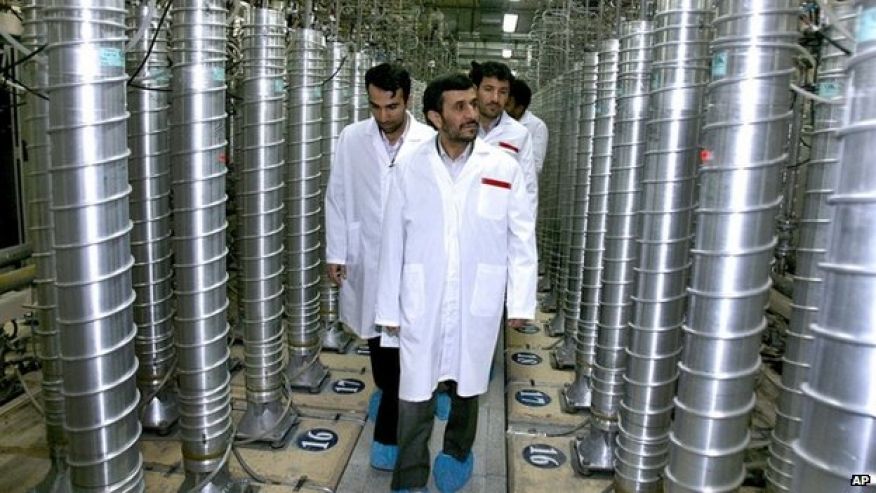Iran’s nuclear deal?
September 14, 2017 | Expert Insights

Former officials of the Obama administration as well as academic experts are requesting US President Donald Trump to not withdraw from the Iran nuclear deal.
Background
Iran’s current nuclear program involves several research sites, two uranium mines, a research reactor, and uranium processing facilities. The country ratified the Non-Proliferation Treaty in 1970. Thus, its nuclear program has to be subject to International Atomic Energy Agency (IAEA) verification.
In the 2000s, reports began emerging on Iran running a uranium enrichment program in secret. An investigation by the IAEA revealed that Iran had not declared a number of its nuclear activities to the group. Thus, the nation was subjected to multiple harsh sanctions from the international community. This has cost the nation billions of dollars (estimated $100 billion in oil revenues alone till 2015). It has also lost out on foreign direct investment.
On 2 April 2015, the P5+1 and Iran reached a provisional agreement that sought to lift most of the sanctions in exchange for limits on Iran's nuclear programs extending for at least ten years. When the International Atomic Energy Agency (IAEA) certified that Iran had restricted its sensitive nuclear activities, the UN sanctions were lifted on January 16, 2016.
United States and Iran do not have any formal diplomatic relations or ties. The two nations share an acrimonious relationship. In 2002, US President, George W Bush, referred to Iran as being part of the “axis of evil.”
Analysis
US President Donald Trump has often been critical of the nuclear deal and often spoken about withdrawing. Recently, he told reporters that he didn’t believe that Iran was living up to the spirit of the deal. He said, “They are not in compliance with the agreement and they certainly are not in the spirit of the agreement in compliance, and I think you’ll see some very strong things taking place if they don’t get themselves in compliance.”
However, according to the UN watchdog International Atomic Energy Agency (IAEA), Iran has not exceeded the agreed limit of 300kgs of uranium. The agency has also confirmed that the nation’s stock of low-enriched uranium is being used for peaceful purposes only.
Nikki Haley, United States Ambassador to the United Nations, recently laid the case for US to withdraw in a carefully worded statement. She said, “What I am saying is should he (Donald Trump) decide to decertify, he has grounds to stand on. It's very easy to just talk about compliance and the JCPOA (Joint Comprehensive Plan of Action) but there's so much more to the story that we need to be looking at.”
Officials who served during the Obama administration have requested the government not to withdraw from the deal. Wendy Sherman, a former undersecretary of state who was the chief negotiator of the deal recently said, “Either directly or indirectly, ripping up this deal by the United States is the worst thing we could do for American national security. If the deal fell apart, because we either were in material breach or we took actions where Iran decided it needed to leave, obviously Iran would be back on the march to getting potential for a nuclear weapon and the [International Atomic Energy Agency] would lose all visibility into the program.”
Additionally, more than 80 experts on nuclear proliferation co-signed a statement to the US President requesting him not to withdraw from the deal. The signatories include many academics and some former State Department officials.
They wrote, “Abandoning the deal without clear evidence of an unresolved material breach by Iran that is corroborated by the other EU3+3 partners runs the risk that Tehran would resume some of its nuclear activities, such as enriching uranium to higher levels or increasing the number of operating centrifuges. These steps would decrease the time it would take for Iran to obtain enough nuclear material for a warhead.”
Assessment
Our assessment is that Iran gave up its enriched uranium, destroyed 13,000 centrifuges, dismantled its arak reactor, let the UN install monitoring devices, implemented the NPT additional protocol and a host of other measures before US or any other nation began lifting the sanctions. The US contention that Iran violated the negotiated 130 tonne limit on heavy water was only on two occasions and it was rectified immediately. We feel the option of letting JCPOA collapse will allow Iran to develop a bomb if it wishes. The neo conservatives will keep talking about a regime change and the hardliners will be more determined to enter the nuclear club.








Comments